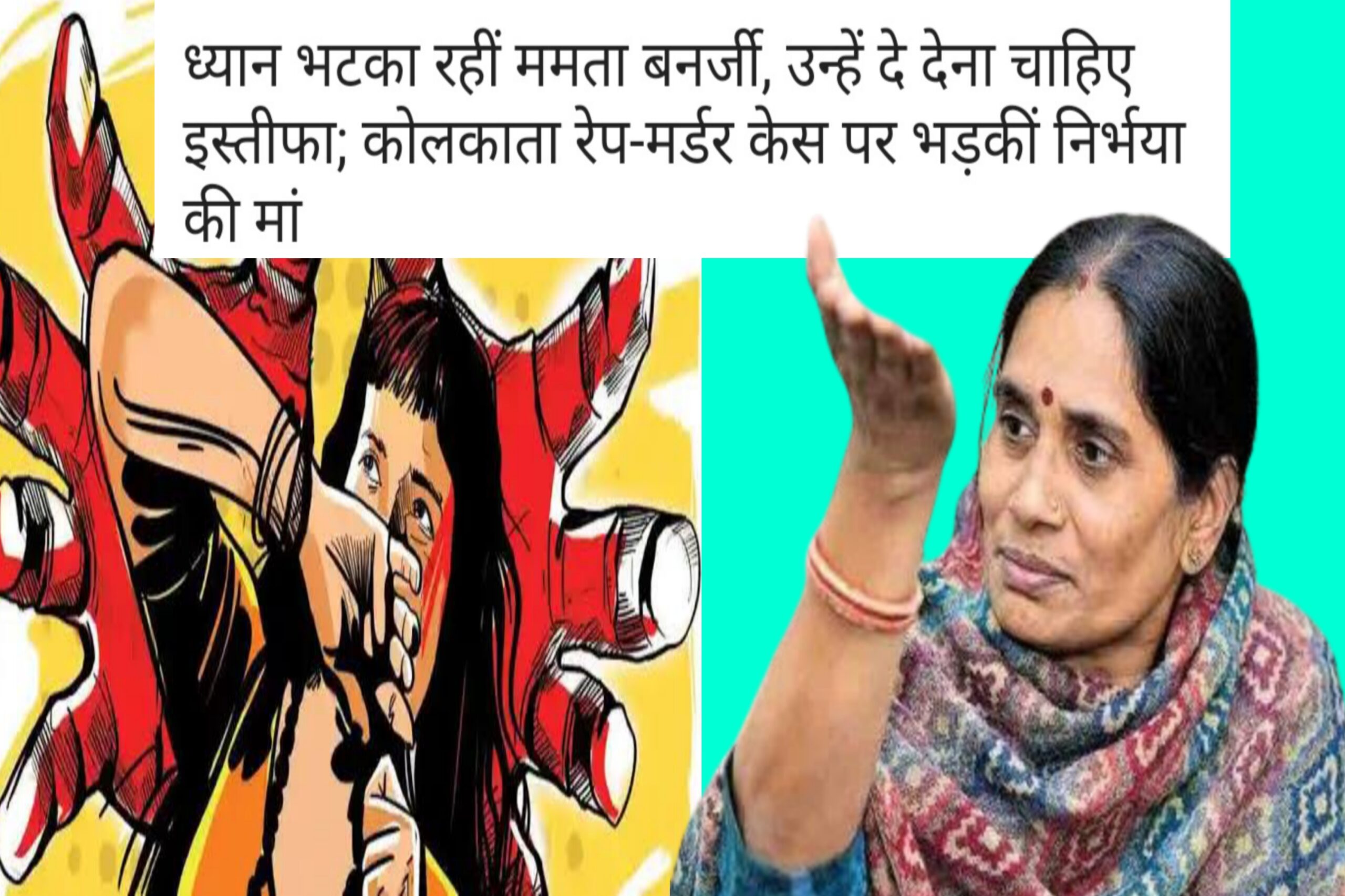
Selective Outrage
The issue of sexual violence in India is a complex and deeply rooted one, intersecting with factors such as caste, politics, and media attention. The tragic cases of rape that have shaken the nation over the years, such as the Nirbhaya case in Delhi, the Kathua case in Jammu and Kashmir, the Hathras case in Uttar Pradesh, and the recent horrors in Manipur, reveal troubling patterns in how society and the media respond to such crimes.
The recent statement by Nirbhaya’s mother, targeting Mamata Banerjee and questioning her political stance on a rape case in Kolkata, has reignited debates on the selective outrage and the role of caste and politics in determining which cases gain prominence.
Selective Outrage and Media Attention
The Nirbhaya case of 2012 was a watershed moment in India’s fight against sexual violence. It mobilized massive protests, led to legal reforms, and awakened a national consciousness about the horrors of rape. Nirbhaya’s mother, Asha Devi, became a symbol of resilience, tirelessly seeking justice for her daughter. However, over the years, her selective engagement with certain rape cases while remaining silent on others raises questions about the factors influencing her activism.
In the recent controversy, Asha Devi criticized Mamata Banerjee, the Chief Minister of West Bengal, for her response to a rape case in Kolkata. This raises an important question: why does the outrage seem so selective? Why do some cases, like Nirbhaya’s, receive relentless attention, while others, particularly those involving victims from marginalized communities, barely make it to the headlines?
Caste and Class: The Unseen Barriers
India’s social fabric is deeply entrenched in caste hierarchies, which influence every aspect of life, including the way justice is sought and delivered. Rape cases involving upper-caste women often receive more media attention and public outrage than those involving Dalit or tribal girls/women. The Hathras case is a stark example of this disparity. A 19-year-old Dalit girl was brutally raped and murdered by four upper-caste men belonging Thakur community in Uttar Pradesh, but the initial response from the authorities was shockingly dismissive. It was only after sustained pressure from activists and social media that the case received the attention it deserved.
The silence of prominent figures like Nirbhaya’s mother on cases like Hathras, Kathua, or the recent violence in Manipur is troubling. It suggests that caste and politics play a significant role in determining which victims are deemed worthy of justice. The fact that many of these cases involve Dalit, tribal, or minority women only reinforces the perception that their lives are considered less valuable by society at large.
The Role of Politics
The intersection of caste and politics further complicates the narrative. In India, where caste-based politics is a reality, political parties often use cases of sexual violence to further their agendas. The Kathua case, where an 8-year-old Muslim girl was brutally raped and murdered at Hindu temple, became a communal flashpoint, with political parties taking sides based on religious affiliations rather than seeking justice for the victim. And communal elements from Hindutva organisations (Hindu Ekta Manch) took out Tiranga Yatras, taking sides with the perpetrators. Similarly, the Hathras case saw political parties using the tragedy to mobilize support among Dalits while the state machinery tried to suppress the case.
When prominent figures like Asha Devi (Nirbhaya’s mother) speak out selectively, it raises suspicions about their political affiliations or motivations. Is her silence on cases involving Dalit or tribal women a reflection of her own biases, or is it influenced by political pressures? If she speaks out only when a case involves an upper-caste victim or when it serves a political narrative, it undermines the universal fight against sexual violence.
A Call for Consistent Outrage
To truly address the scourge of sexual violence in India, it is imperative that we recognize the equal worth of all victims, regardless of their caste, class, or religion. The fight for justice should not be selective or influenced by political or caste considerations. Activists, public figures, and the media must consistently speak out against all forms of sexual violence, ensuring that every victim’s voice is heard, and every perpetrator is brought to justice.
Nirbhaya’s mother has undoubtedly been through unimaginable pain and has channeled her grief into activism for justice. However, her selective engagement with certain cases over others does raise important questions about the nature of her activism. If she remains silent on the rapes of Dalit, tribal, or minority women, it risks perpetuating the very casteist mentality that allows such atrocities to continue unabated.
Also Read: The Unseen Struggles of Leaders from Marginalized Communities
Sexual violence in India cannot be tackled unless we confront the uncomfortable realities of caste and politics that influence our responses to these crimes. The selective outrage that often accompanies high-profile rape cases is a reflection of deep-seated biases that prioritize the suffering of some victims over others based on their caste or the political mileage that can be gained.
As a society, we must strive for a more just and equitable approach to addressing sexual violence, one that recognizes the humanity of all victims and holds all perpetrators accountable, regardless of the victim’s social standing. Only then can we hope to create a society where justice is not a privilege of the few but a right for all.

